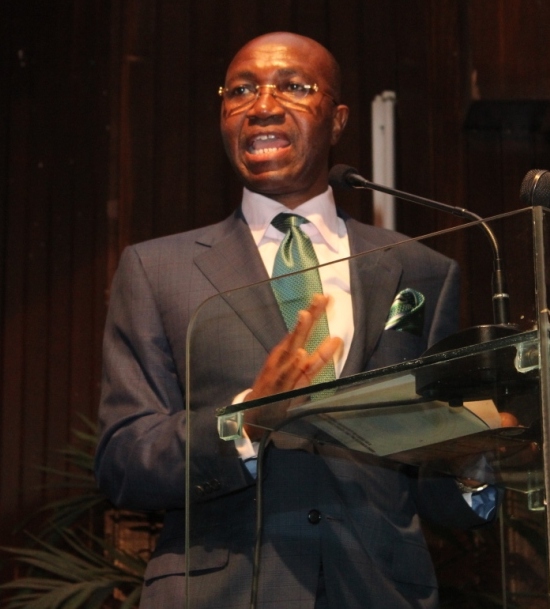A legal luminary, Chief Wole Olanipekun (SAN), has lamented the way the Economic and Financial Crimes Commission (EFCC) has been handling the prosecution of corruption cases in the country.
The former President of the Nigerian Bar Association (NBA), in an interview with Vanguard published on Sunday, decried the situation where the EFCC will bring as many as 100 counts against an accused person on a single charge.
He said the EFCC appeared to be prosecuting for entertainment and prosecuting sake and urged the anti-graft body to prune down the number of counts of a single charge preferred against an accused person to a manageable number, stating that most of the counts were simply repetitive.
He said: “There are no specific laws, to the best of my knowledge, guiding or regulating prosecution of corruption and financial crimes. They come within the same purview, within the same Administration of Criminal Justice Act at the federal level. Like in Lagos, we have the Administration of Criminal Justice Law, Criminal Code, Penal Code and all the procedural and adjectival and substantive laws regulating them. As someone who has defended the accused or defendant in some of these cases, the only thing I see is that the prosecution at the EFCC seems to be biting more than it can chew. It is not compulsory that you have to prosecute for the sake of prosecution or entertaining. To me, there are some of the cases that you can ask the accused to return the money. Some of these cases are not criminal.
“How can a prosecutor bring 100-count charge against a person, against an accused person, in respect of the same transaction? You keep on repeating yourself; you keep on re-introducing the same ingredients in count one, through to count three, through to count 10, through to 20, through to count 60, in the same subject. You don’t need that because you will need to prove every ingredient of the offence, to prove every count. Even when you have to go to court, they should be as concise as possible. Why don’t you make it brief? Maximum, you can have seven-count charge. You can’t reasonably have a hundred-count charge on the same subject. You are talking of N2billion from somewhere to somewhere and it becomes a recurring decimal from one charge to another. To me, it is not tidy enough in the EFCC cases.
“And, again, you don’t expect judges to perform magic or to do your work for you. You don’t also expect the judge to say that, ‘By all means, I am going to convict a person’, because he is docked by the EFCC. It must be decided according to the law. A judge would decide according to law and not according to the noise in the market place, not justice according to your intention but justice to according to the law, the Constitution and based on the counts before the court and also the evidence adduced. Justice cannot be in isolation, it cannot be in a vacuum.
“There is the danger in this country today because when someone goes to the dock, the next thing is prison. What differentiates human beings from animals is the rule of law. Both parties and sides must be heard. God did not condemn, God did not convict, God did not sentence Adam and Eve in the Garden of Eden without hearing them. The danger of Nigerians wanting any person just to be convicted is that if it is Mr A today, it could be Mr B tomorrow. So we have to be careful.”



Leave a Reply